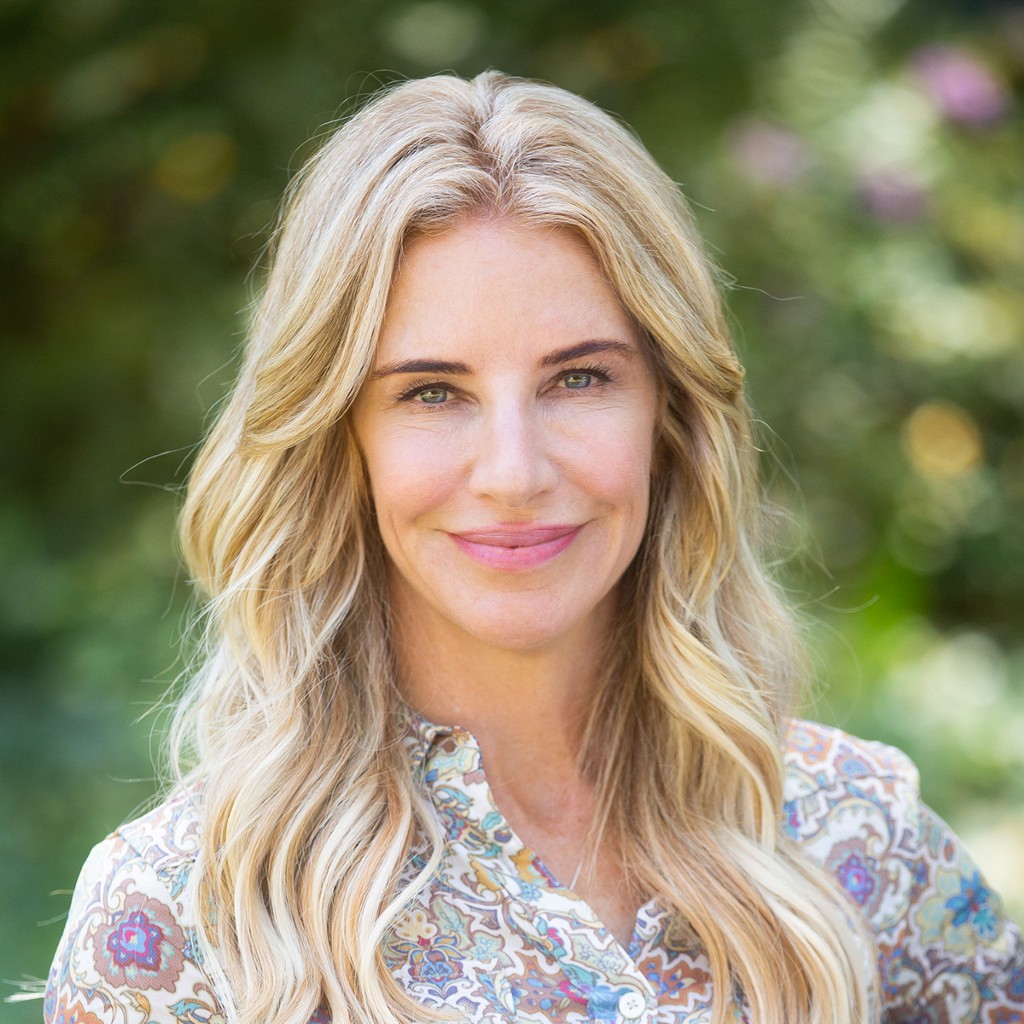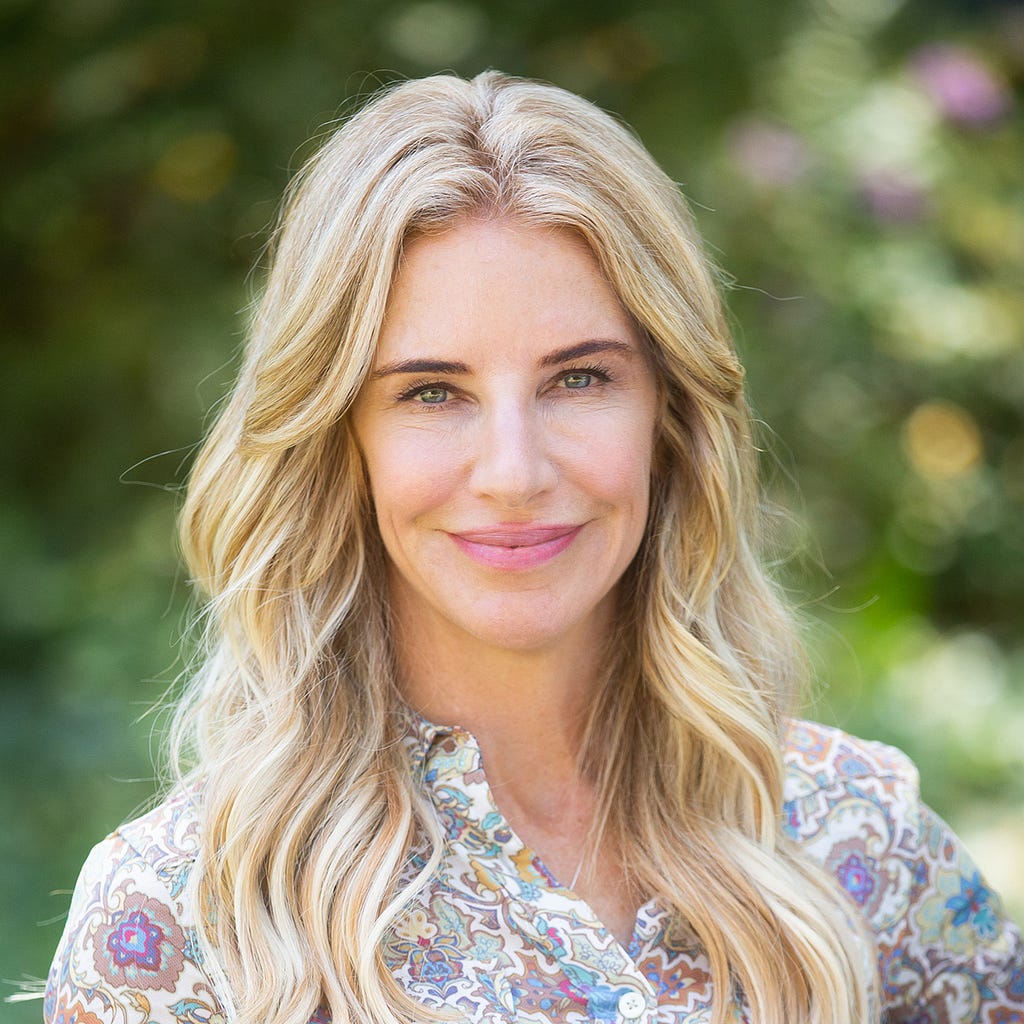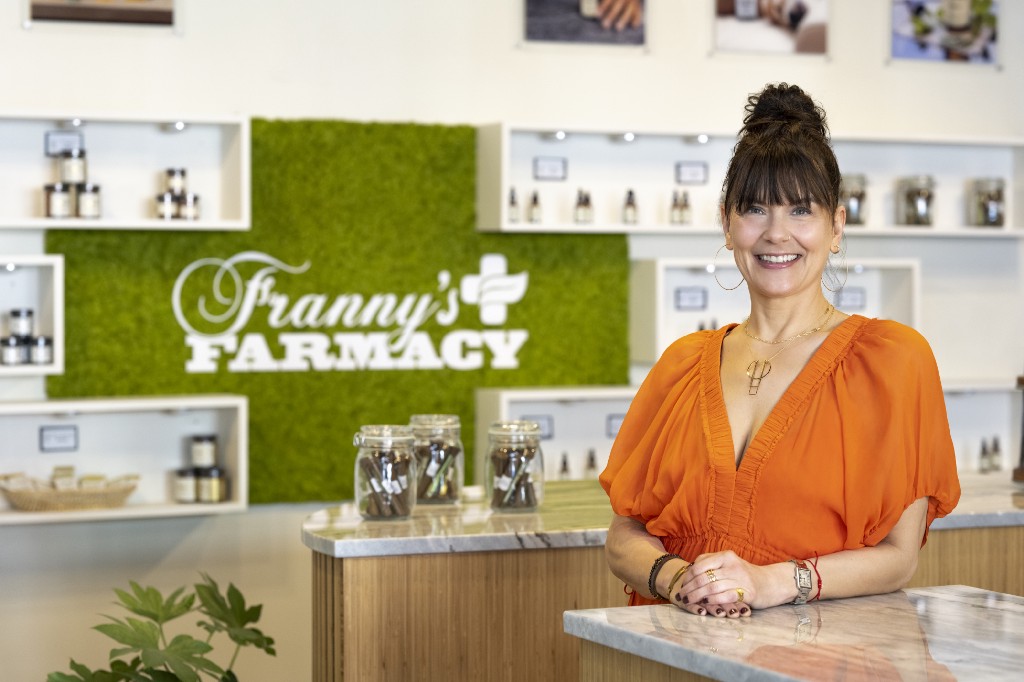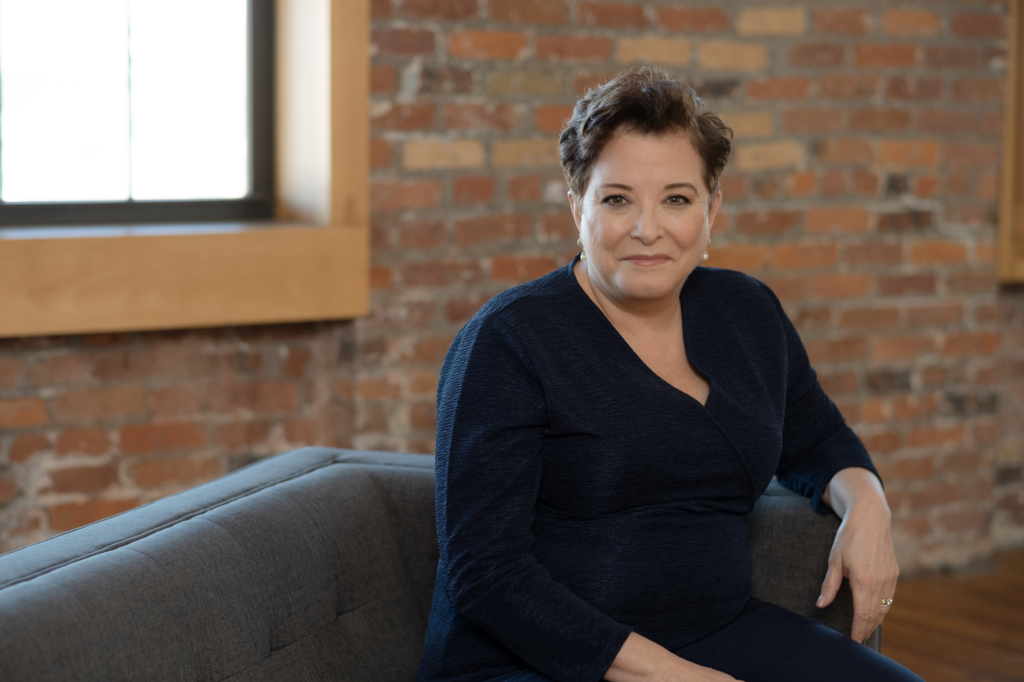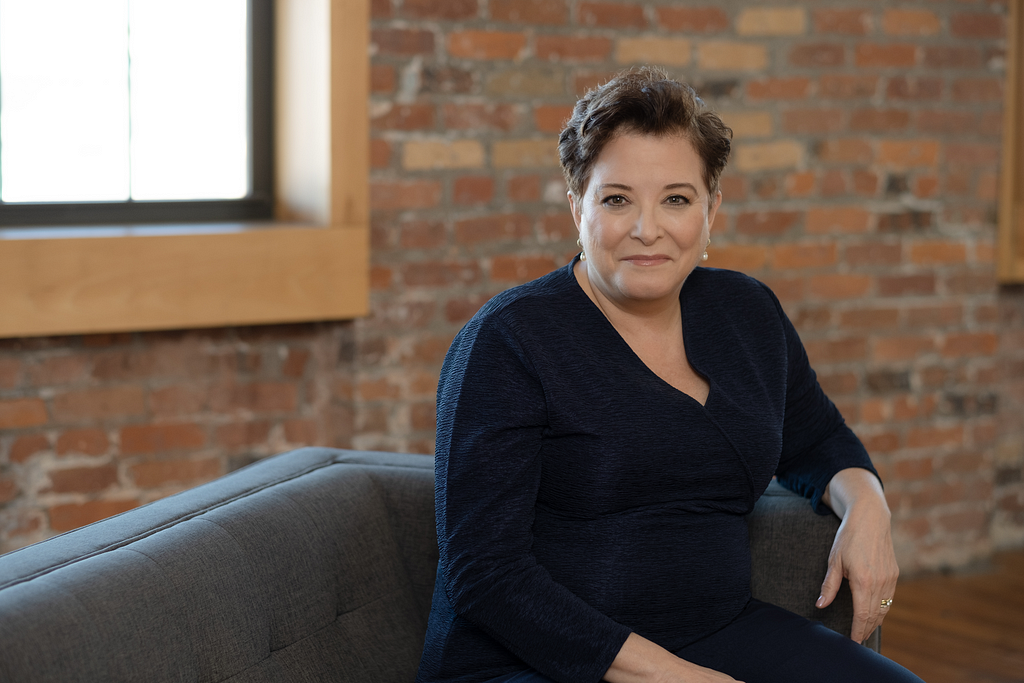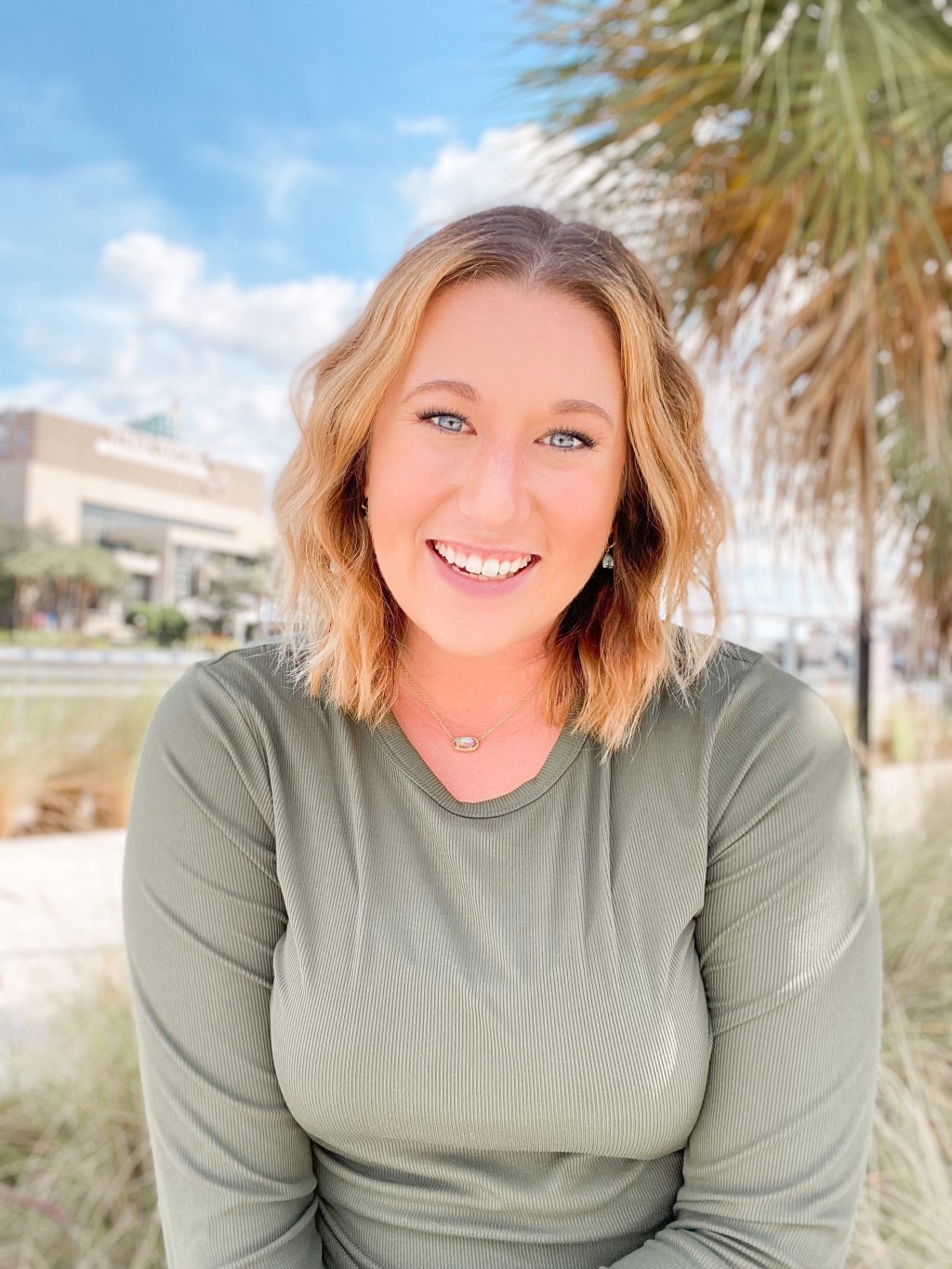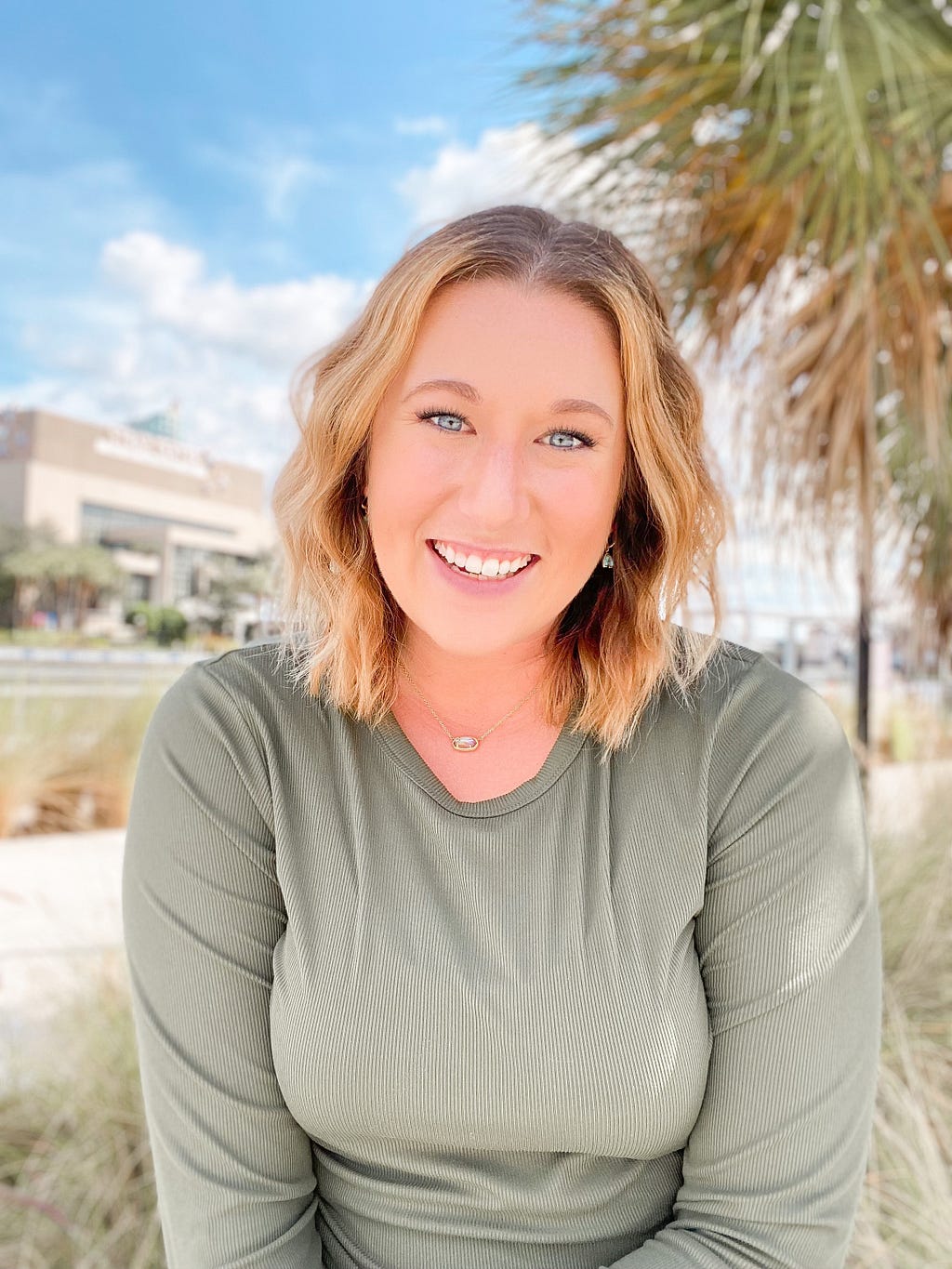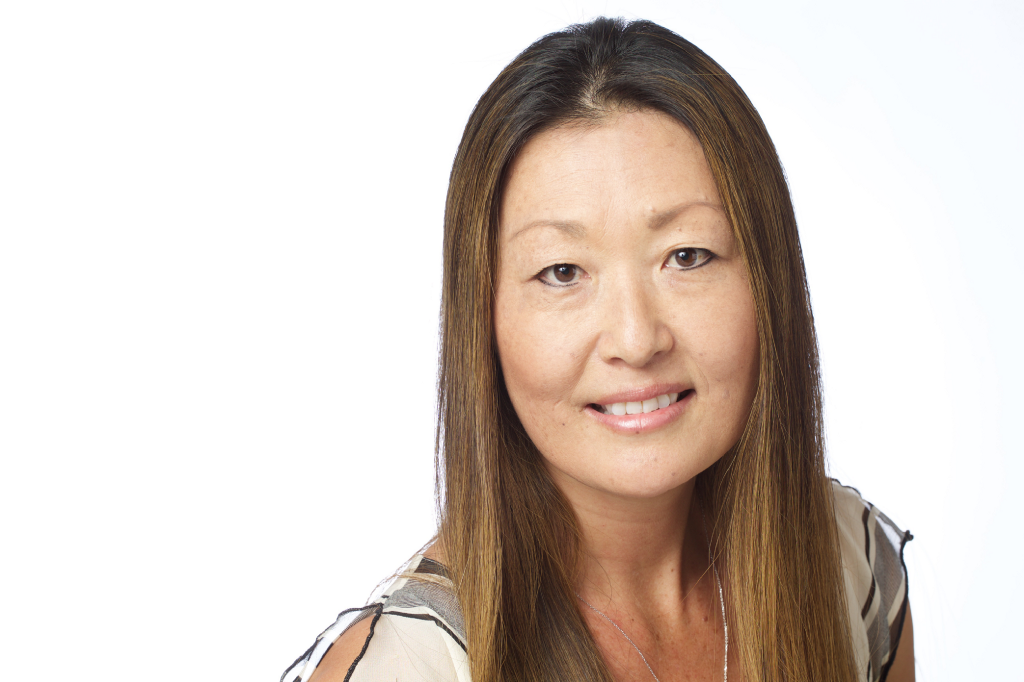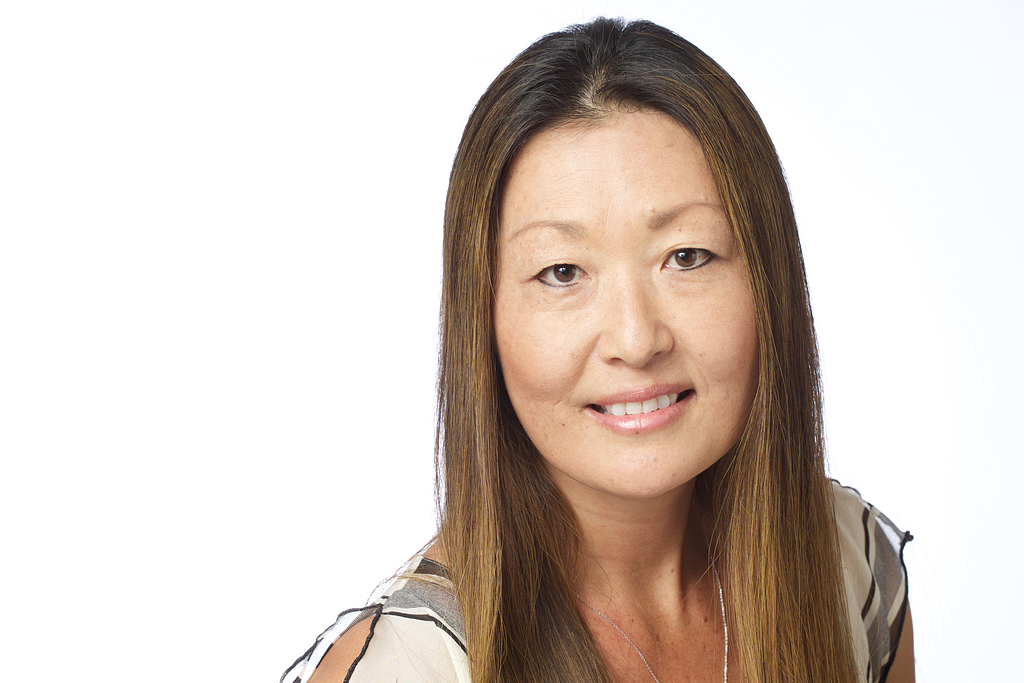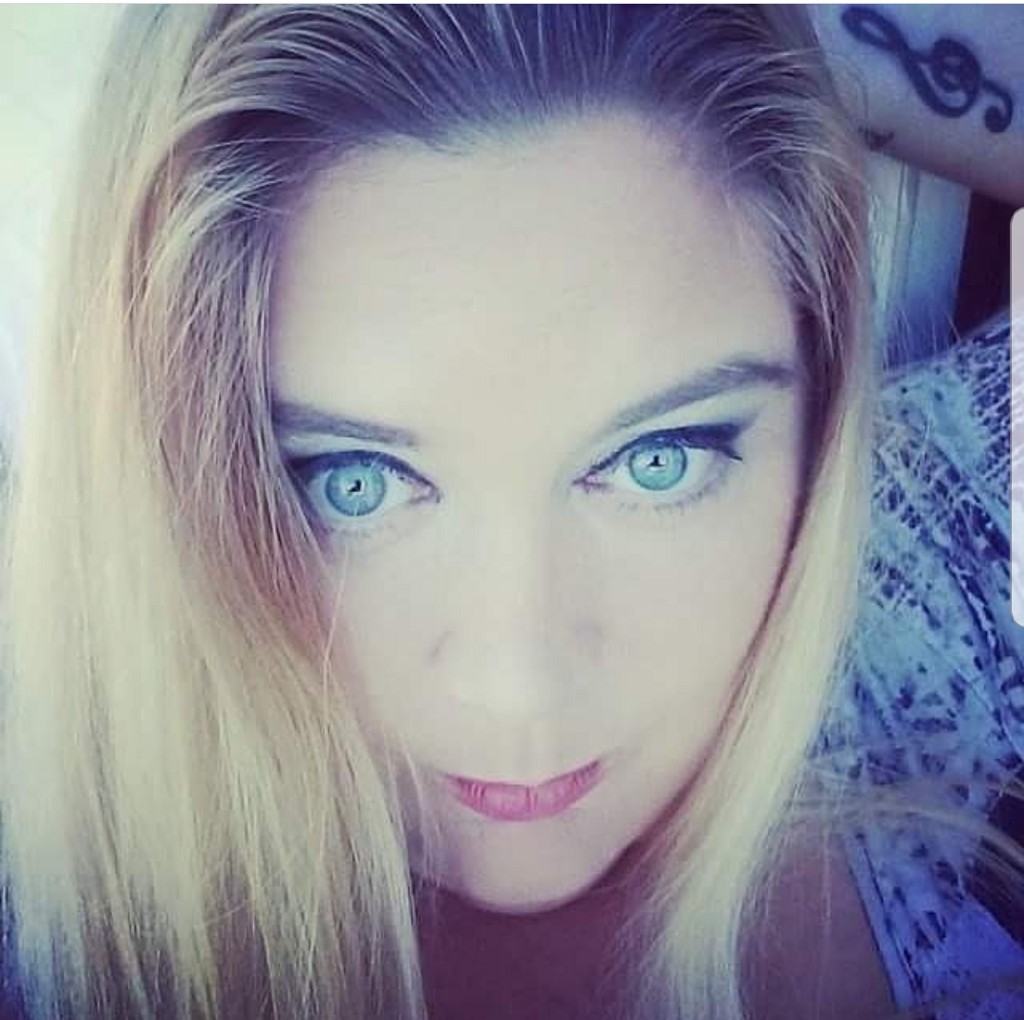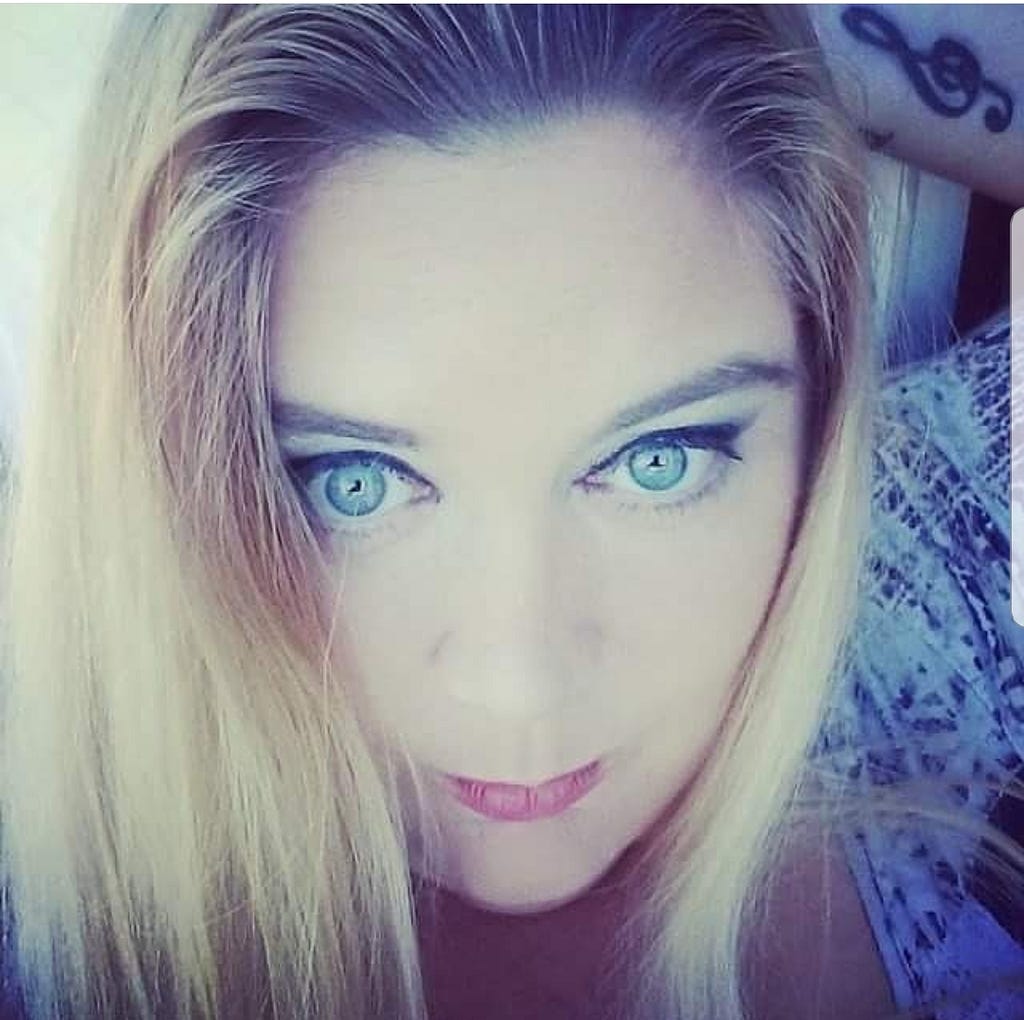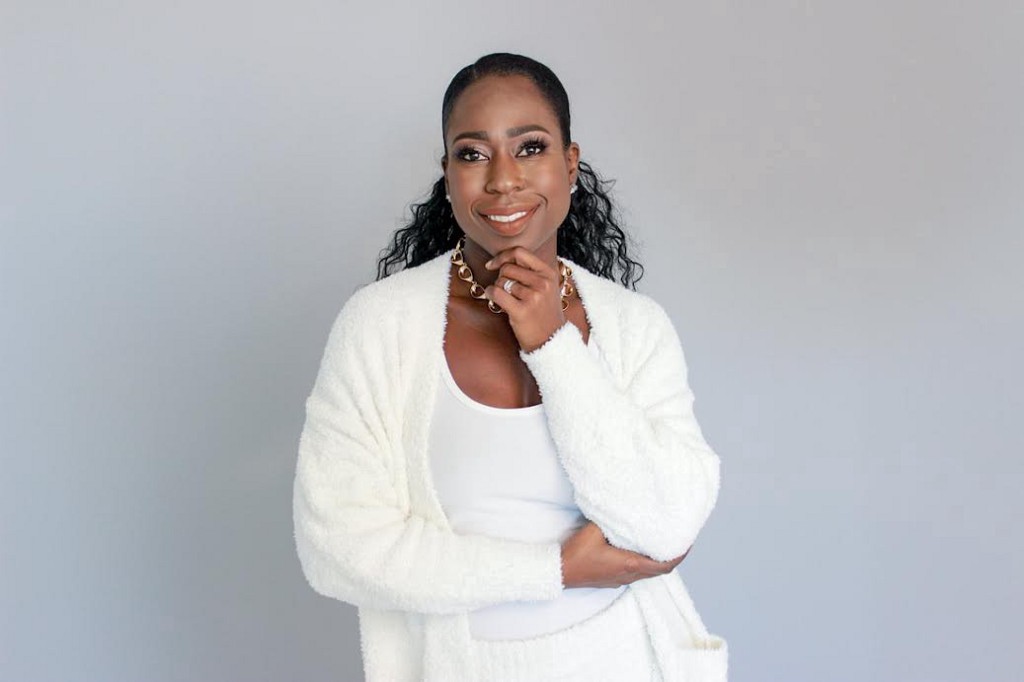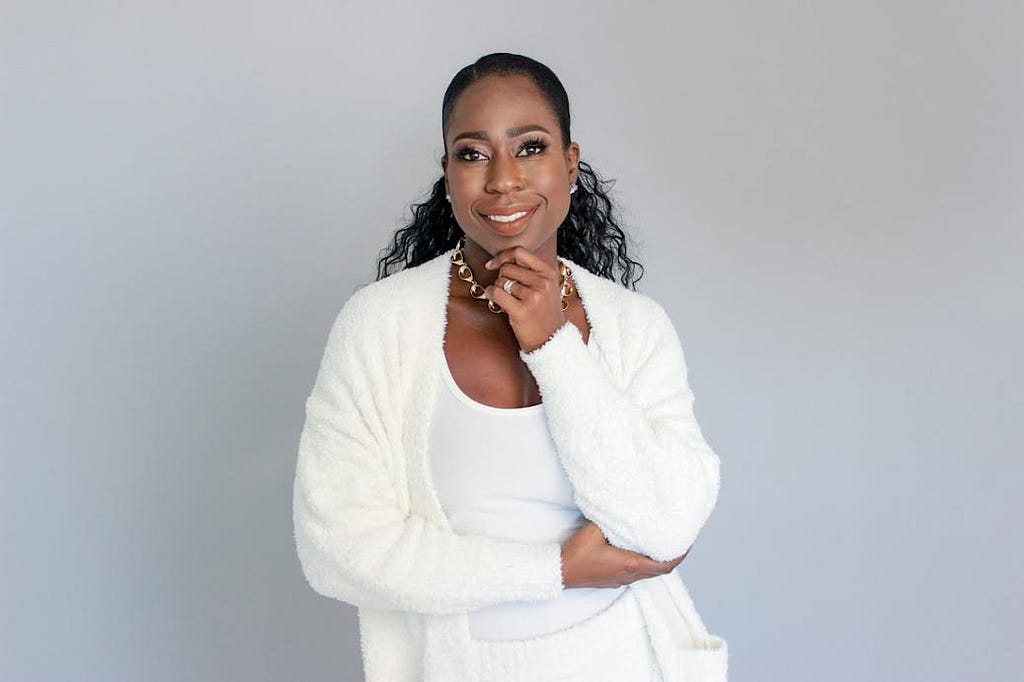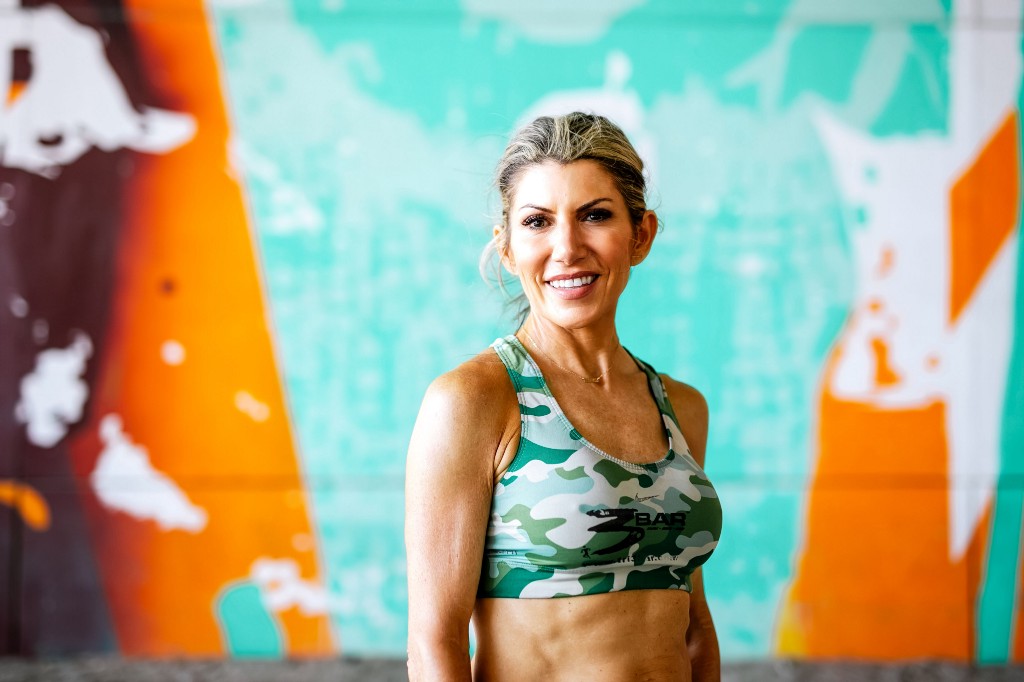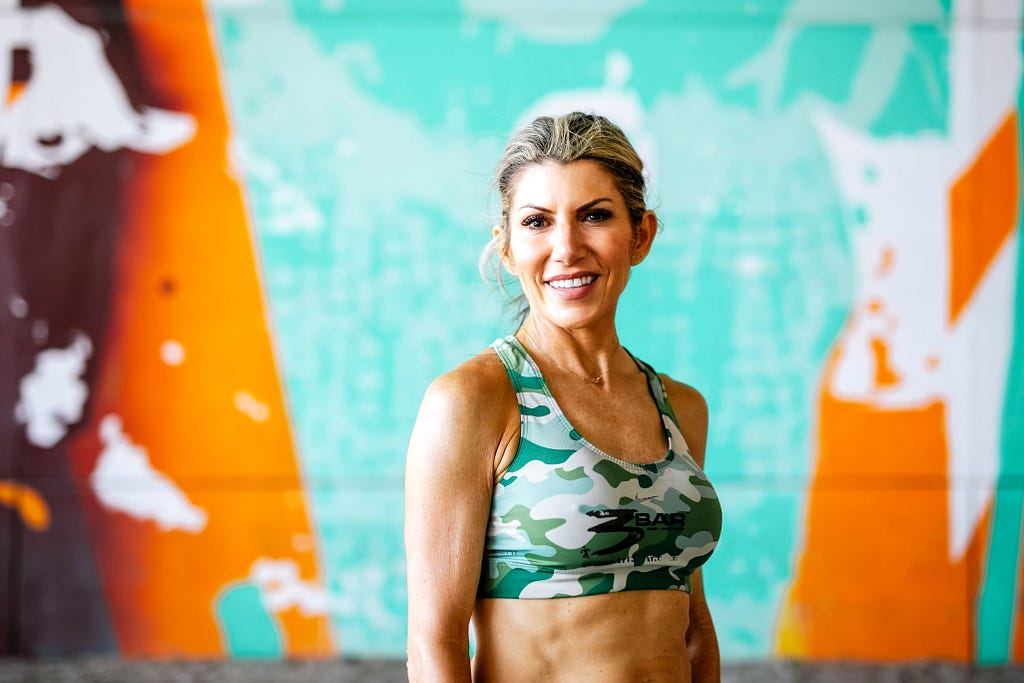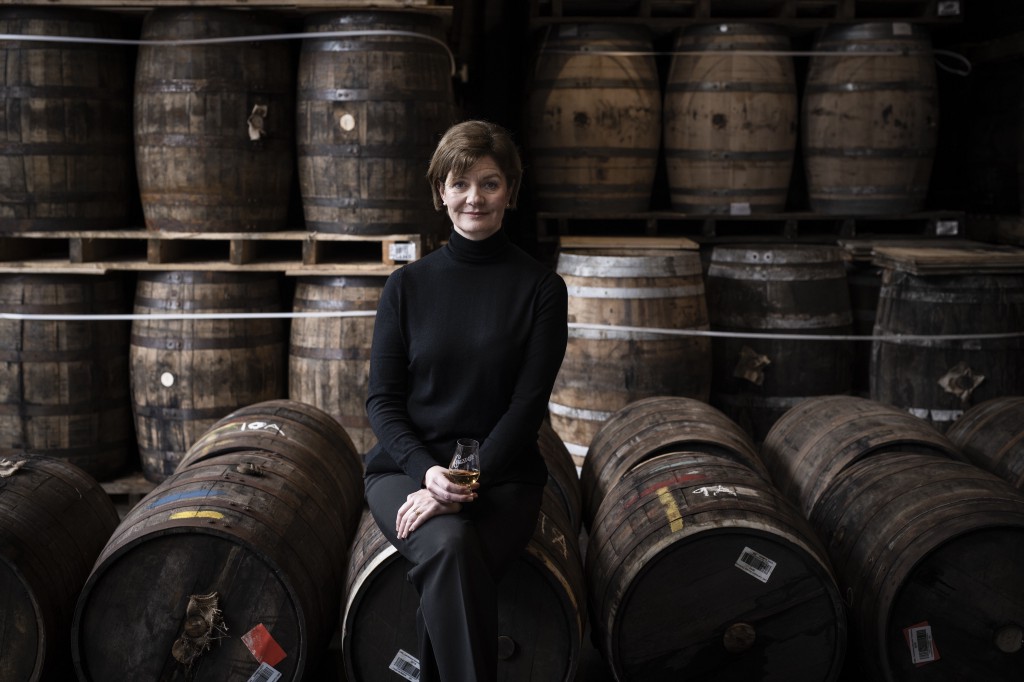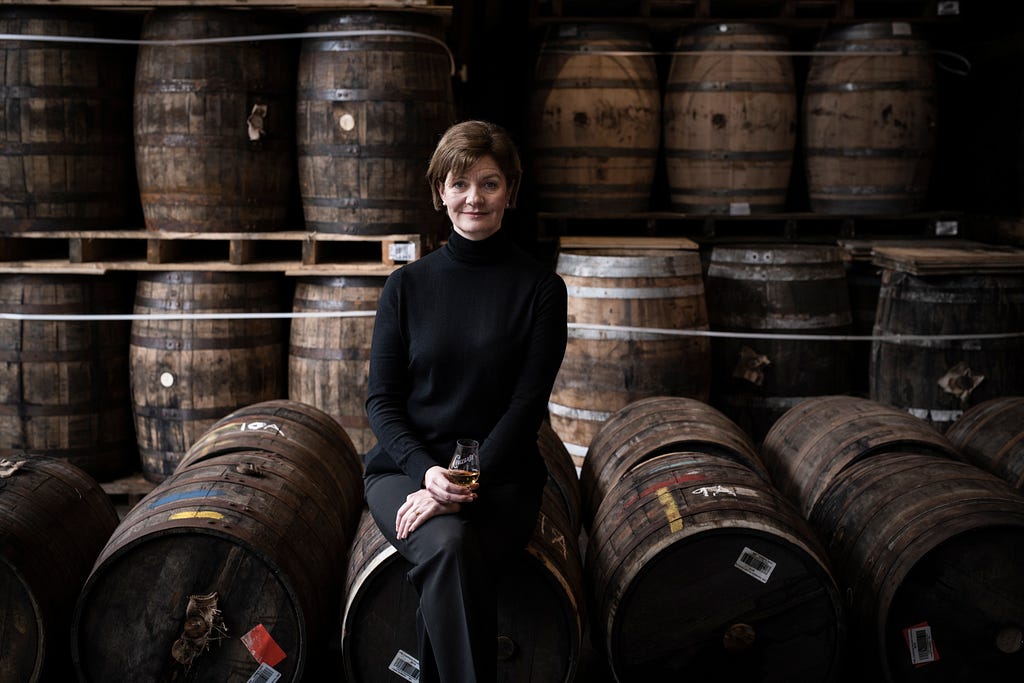Female Founders: Mandy Gleason of Replica Surfaces On The Five Things You Need To Thrive and Succeed as a Woman Founder
An Interview With Candice Georgiadis

Find mentors early so that you don’t have to go it alone. You can learn before you make mistakes. Clarity.FM is an online search engine for small business owners to find experts in areas of small business. It’s a great way to find mentors in all areas. I’ve used it for accounting, legal, wholesale, and plastics engineering advice. You can also establish longer relationships if you click with someone.
As a part of our series about “Why We Need More Women Founders”, I had the pleasure of interviewing Mandy Gleason, founder and CEO of Replica Surfaces.
Before launching Replica Surfaces in 2018, Mandy lived many different lives. From a young entrepreneur in grade school, to a television actor, to a resident physician, Mandy realized that she needed to trace her roots back to her entrepreneurial spirit and create something completely new. After inventing a specialized box opener (of all things), Mandy struggled with taking photos of her prototype and after trying to source photo backdrops, she realized there wasn’t a product out there accessible for small business owners and content creators to take high-quality product shots — so she decided to create one along with the mission to help educate and inspire anyone from hobbyists to entrepreneurs to become their most successful selves.
Thank you so much for doing this with us! Before we dig in, our readers would like to get to know you a bit more. Can you tell us a bit about your “backstory”? What led you to this particular career path?
My career path as a founder truly came about unexpectedly. I was working as a resident physician and looking up to these doctors who I would soon be working alongside, and I realized that most were unhappy in their careers. So after self-reflecting, I realized I needed to forge a side income stream so that I could take a job I enjoyed rather than settle for one that paid enough to cover my student loans. Don’t even get me started on how massive my student loans were!
A close friend of mine owned an e-commerce business and inspired me to get started with my own venture. So, I invented a specialized box opener, of all things! In the process of trying to photograph my prototype, I struggled with poor lighting and unflattering countertops. I tried my best to find an affordable, easily accessible photo backdrop, and I simply couldn’t find anything!
I knew there were other creators out there like myself that didn’t have a background in photography and I wanted to come up with a solution…That’s when the idea sparked for Replica Surfaces.
Can you share the most interesting story that happened to you since you began leading your company?
Our most recent product is the Replica Studio. It’s a platform on a tripod that’s height adjustable and you can move it around to find the best light. You can attach any of our Surfaces to create a wall or table effect anywhere in your home. I spent so much time coming up with every feature imaginable that I thought would make the perfect in-home studio. It was important to me to identify the features that would matter to our customers — that was key.
When I was using the prototype, I realized, after all that work thinking of each necessary feature, I accidentally designed an extra two-in-one component! The handle to push the studio around doubles as a light-diffuser holder. It was a happy accident that resulted in a dual-purpose feature on something I’d already worked so hard to meticulously put features into. Founders face new challenges every day, so it was awesome to have a feature fall into my lap!
Can you share a story about the funniest mistake you made when you were first starting? Can you tell us what lesson you learned from that?
From the start, I knew I wanted Replica Surfaces to be more than just a product, rather a community of small business owners and creators. So when we launched our Instagram account, we made it a point to reach out personally to each individual follower to thank them and also see what kinds of things they wanted to see from us.
My husband, Adam, offered to help us manage a huge influx of followers. After sending well over 20 DMs to new Replica Surfaces followers, he realized he had been sending them from his personal Instagram account! We had a laugh about it. So, if you were one of our early followers, you received a message from a random guy instead of our brand!
It made me learn that even the most talented and caring people can make mistakes. It happens! You just have to laugh and move on!
None of us are able to achieve success without some help along the way. Is there a particular person who you are grateful towards who helped get you to where you are? Can you share a story about that?
My digital marketer was really the first person who took a chance on Replica Surfaces when we were very small. We were only a couple months into selling live on the website. He worked with a lot of big brands, nothing as small as us. I reached out to him probably 10 times and the persistence paid off. When we were finally able to connect, he was really impressed with the customer focus, strong community, and education we were providing that he decided to take a chance on us.
He ended up doing our digital marketing for free for the first two months just to prove that it was something that would work for us and he’s now been our digital marketer for 3 years. He’s really become a mentor to our brand and our business and I’m very grateful he took a chance on a small company because he really saw something in us.
Ok, thank you for that. Let’s now jump to the primary focus of our interview. According to this EY report, only about 20 percent of funded companies have women founders. This reflects great historical progress, but it also shows that more work still has to be done to empower women to create companies. In your opinion and experience what is currently holding back women from founding companies?
I think that one of the big reasons is that starting a business is a scary thing! I didn’t even think of creating a product or being a founder as something I was capable of. I didn’t even know where to start. It was really because I met a friend who had an e-commerce company and demystified the process.
My friend was talented, but so am I! It showed me that if he could do it, I could do it too! So I feel like the more women see those examples in their life, the more it feels possible.
Can you help articulate a few things that can be done as individuals, as a society, or by the government, to help overcome those obstacles?
We need to share more of their stories! The more we share about women founders, the more the process will become demystified. Like I said before, it can feel really scary if you don’t have those examples to look to, but if stories are shared, it will feel more attainable and perhaps more women will take that leap. And they’re out there! We just have to be talking about them.
This might be intuitive to you as a woman founder but I think it will be helpful to spell this out. Can you share a few reasons why more women should become founders?
I think, as women, we play a lot of different roles in life, but we often feel defined by just one role. We have a career, we’re caretakers, we’re spouses, we’re friends, and the list goes on… I believe that what should define us is the sum of all the roles we play.
Sometimes we need something outside of those roles that is purely our own. Becoming a founder becomes a very personal role that is all about you. It’s an amazing outlet for your own creativity and skills that allows you to share something valuable with the world. It’s also something you get to watch grow which is such a massive reward that can be hard to find elsewhere. And it’s so gratifying.
What are the “myths” that you would like to dispel about being a founder? Can you explain what you mean?
Number one is that you set your own hours. You technically do, but that doesn’t mean we get all this free time to not put in the work. There’s a joke that founders say, “I was sick of working a 9–5 so now I work 24/7” and there’s a lot of truth to that. We can set the time of day we want to work, and we can be flexible. We can take days off, but that might mean we have to work weekends to make up for it. Over time, founders can achieve more free time, but only if we create a team and systems that make that possible.
Another big myth is that it’s too risky. Sure, it can be. But you can start lean, you can be scrappy and smart. You don’t need to invest a ton of money in the beginning. For example, Replica launched as a Kickstarter campaign. Kickstarter is an amazing way to fund your startup costs. It works by pre-selling your product to customers who want to be part of exciting products before anyone else knows they exist. You basically get a startup loan from a couple hundred people rather than a bank. All you have to do is send them the product when it’s done. You can also make gradual improvements and spend more over time. I did our graphic design for the first year and I am hardly a graphic designer. Eventually, I was able to hire someone much more talented to take our brand look to the next level. You also don’t immediately have to quit your job. In fact, I strongly recommend not doing that! You can work on your business on the weekends or in the evenings, which is what I did. You don’t have to remove your safety net until your business is fully supporting you.
The last “myth” I’ll mention is that people will understand your product or business immediately and lavish you with praise for your idea. The truth is, people often think you’re crazy at first, then they think you’re lucky once you’re a success. Lots of people didn’t understand Replica Surfaces at first. Looking back, I and think that was a sign that I was onto something. If you get a similar response when you share your idea with friends, co-workers, or even prospective manufacturers, consider it a sign that you’re tapping into a market that isn’t there yet and you may be on the verge of something big.
Is everyone cut out to be a founder? In your opinion, which specific traits increase the likelihood that a person will be a successful founder and what type of person should perhaps seek a “regular job” as an employee? Can you explain what you mean?
Number one thing that comes to mind for traits that make a successful founder is being a good listener — it’ll help you learn about new opportunities. Listening to your customers — what they’re asking for, what they’re liking and disliking, how they’re engaging with you. Listening to successful friends or other entrepreneurs — they’ve been there before; trust me you can learn a lot from them. You can avoid making mistakes just by listening to their stories. That doesn’t mean you have to follow their advice. Just listen actively and think “could I apply this lesson to what I’m doing?” or “would I enjoy the opportunity they’re finding success with?”
Another one is humility. You’re going to work incredibly hard as a founder, and you should feel good about all the successful moments along the way. But it’s so important to listen to experts and ask for help. You’re going to have to be a jack of all trades, but there will always be people with more experience than you in certain areas of your business and you will need their help.
You must, and this is crucial, be internally motivated. Your entire life has become a blank slate and you’re going to have to be in control. You’re going to have to be able to create your own structure because no one else is going to tell you what it is you’re going to have to do. You have to be a visionary. You must ask yourself what are you working toward? What is your goal and how are you going to build your business to make those visions possible? Then create steps yourself to achieve those goals and visions you set for yourself. It’s a process that consistently needs refinement. Without an understanding of where you want to end up and what you eventually want your day to look like, you won’t be able to decide which opportunities to pursue and where to spend your time.
Ok super. Here is the main question of our interview. What are your “5 Things I Wish Someone Told Me Before I Started” and why? (Please share a story or example for each.)
1. If someone doesn’t totally get your product, you’re probably on the right track. If you believe in it, give it a go.
2. Start lean, so if it doesn’t work, it’s okay and you’ll pivot.
3. Find mentors early so that you don’t have to go it alone. You can learn before you make mistakes. Clarity.FM is an online search engine for small business owners to find experts in areas of small business. It’s a great way to find mentors in all areas. I’ve used it for accounting, legal, wholesale, and plastics engineering advice. You can also establish longer relationships if you click with someone.
4. Customer criticism is ALWAYS going to hurt. As a founder, you pour everything into it. Anytime you hear a customer is upset, it’s going to stab you in the heart. But feedback does make everyone’s experience better in the long run. As you start to scale up your business, the first thing you should do is hire someone to manage your customer service. Customer service is such an important part of the customer experience that it’s worth hiring a dedicated customer service agent. The agent will also report back to you on customer feedback so you can learn from it while reducing that heart-stabbing feeling!
5. Competitive knockoffs are going to come into the sphere, and they’re going to bother you because you did it first. But they are a sign that you’re going in the right direction. So use it as affirmation and motivation that you are making something great and other people see that!
How have you used your success to make the world a better place?
When I started Replica Surfaces, I knew right away we were more than just a tool for small business owners, bloggers and entrepreneurs. I knew I could use my expertise to give educational resources to those aspiring to be successful in small businesses. I found such joy in doing what I do, that I wanted to share it with the world, in hopes that I could help others find their joy too.
I’m able to bring education, efficacy, and experience to other small business owners. I’m able to provide small businesses with the resources to achieve their goals. And as they do that, their lives improve and the lives around them improve.
One small business at a time, Replica Surfaces is making the world a better and more joyful place. And that’s an incredible feeling.
You are a person of great influence. If you could inspire a movement that would bring the most amount of good for the greatest number of people, what would that be? You never know what your idea can trigger.
The Replica VIP group is already a movement of that sort. We have over 13,000 members in the group already and it is an incredibly supportive place where members help each other to get better and achieve their photography and business goals.
I would encourage every small business owner to join this group. Whether or not they’re a Replica Surfaces customer, it’s a group where all small business owners can bounce ideas off each other and help one another grow.
We are very blessed that some very prominent names in Business, VC funding, Sports, and Entertainment read this column. Is there a person in the world, or in the US with whom you would love to have a private breakfast or lunch with, and why? He or she might just see this if we tag them.
If I could sit down with anyone it would without a doubt be Josh Silverman, the CEO of Etsy. With how many small business owners are on Etsy and how important photography is for those businesses, I feel like Etsy and Replica Surfaces are just a match. I feel like a partnership with Etsy and Replica Surfaces would help sellers grow to new heights.
Plus, Josh is just such an amazing CEO and person, I would love the chance to listen and learn everything I can from him!
Thank you for these fantastic insights. We greatly appreciate the time you spent on this.
Female Founders: Mandy Gleason of Replica Surfaces On The Five Things You Need To Thrive and… was originally published in Authority Magazine on Medium, where people are continuing the conversation by highlighting and responding to this story.



